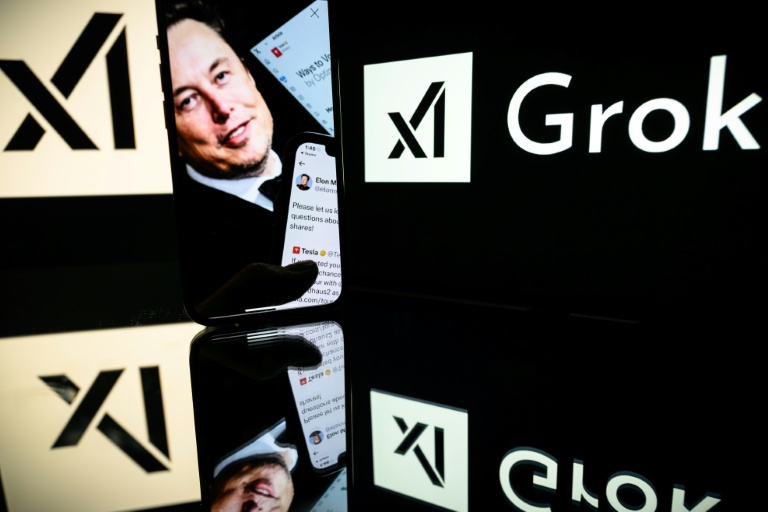Science
Elon Musk’s Grokipedia Faces Scrutiny Over Questionable Sources

Elon Musk’s Grokipedia, launched in August 2023, is under fire for its reliance on “questionable” sources, as highlighted in a new study by researchers at Cornell Tech. The AI-driven encyclopedia aims to rival Wikipedia but raises concerns regarding its credibility as an information resource.
Researchers Harold Triedman and Alexios Mantzarlis conducted an extensive analysis of Grokipedia, examining hundreds of thousands of articles. The findings, shared with AFP, indicate a significant prevalence of problematic citations, particularly concerning political figures and contentious topics. The study suggests that the platform lacks sufficient sourcing guardrails, leading to the inclusion of materials that could mislead users.
The report specifically points to Grokipedia’s entry on the “Clinton body count,” a debunked conspiracy theory linking former President Bill Clinton and his wife, Hillary Clinton, to various deaths. This entry cites InfoWars, a website known for disseminating misinformation. Other articles on Grokipedia reference various right-wing media outlets from the United States and India, as well as state media from China and Iran, alongside portals accused of promoting pseudoscience and conspiracy theories.
According to the researchers, Grokipedia often fails to qualify the reliability of its sources. The study reveals that articles not attributed to Wikipedia are 3.2 times more likely to cite sources classified as “generally unreliable” by the Wikipedia community. Additionally, they are 13 times more likely to include sources that Wikipedia has blacklisted, further calling into question the encyclopedia’s reliability.
Response from Musk and Wikipedia
In response to the report, a request for comment from xAI resulted in an auto-generated reply stating: “Legacy Media Lies.” Despite the criticisms, Musk has reiterated that Grokipedia aims to present “the truth, the whole truth and nothing but the truth.” He has also announced plans to rebrand Grokipedia as “Encyclopedia Galactica,” stating that the project has a long way to go before it meets his standards.
Musk’s ongoing critiques of Wikipedia stem from a belief that it harbors a bias against right-leaning perspectives. Last year, he encouraged his followers on social media to cease donations to Wikipedia, labeling it “Wokepedia.” In a recent podcast interview, Wikipedia founder Jimmy Wales countered claims of left-wing bias, asserting they are “factually incorrect.” He acknowledged that while improvement is necessary, Wikipedia’s volunteer-driven model emphasizes transparency.
In contrast to Grokipedia, which utilizes rapidly generated AI content with limited oversight, Wikipedia maintains rigorous documentation of sources behind its articles. Selena Deckelmann, Chief Product and Technology Officer at the Wikimedia Foundation, emphasized that Wikipedia’s community-driven approach ensures neutrality and trustworthiness. “No single individual, company, or agenda can exert influence over the work,” she stated.
As Grokipedia continues to evolve, the implications of its sourcing practices raise vital questions about the future of information sharing in the digital age. The contrast between Grokipedia and established platforms like Wikipedia underscores the ongoing debate about reliability and bias in online information sources.
-

 Science3 months ago
Science3 months agoToyoake City Proposes Daily Two-Hour Smartphone Use Limit
-

 Top Stories3 months ago
Top Stories3 months agoPedestrian Fatally Injured in Esquimalt Collision on August 14
-

 Health3 months ago
Health3 months agoB.C. Review Reveals Urgent Need for Rare-Disease Drug Reforms
-

 Technology3 months ago
Technology3 months agoDark Adventure Game “Bye Sweet Carole” Set for October Release
-

 World3 months ago
World3 months agoJimmy Lai’s Defense Challenges Charges Under National Security Law
-

 Lifestyle3 months ago
Lifestyle3 months agoVictoria’s Pop-Up Shop Shines Light on B.C.’s Wolf Cull
-

 Technology3 months ago
Technology3 months agoKonami Revives Iconic Metal Gear Solid Delta Ahead of Release
-

 Technology3 months ago
Technology3 months agoApple Expands Self-Service Repair Program to Canada
-

 Technology3 months ago
Technology3 months agoSnapmaker U1 Color 3D Printer Redefines Speed and Sustainability
-

 Technology3 months ago
Technology3 months agoAION Folding Knife: Redefining EDC Design with Premium Materials
-

 Business3 months ago
Business3 months agoGordon Murray Automotive Unveils S1 LM and Le Mans GTR at Monterey
-

 Technology3 months ago
Technology3 months agoSolve Today’s Wordle Challenge: Hints and Answer for August 19









